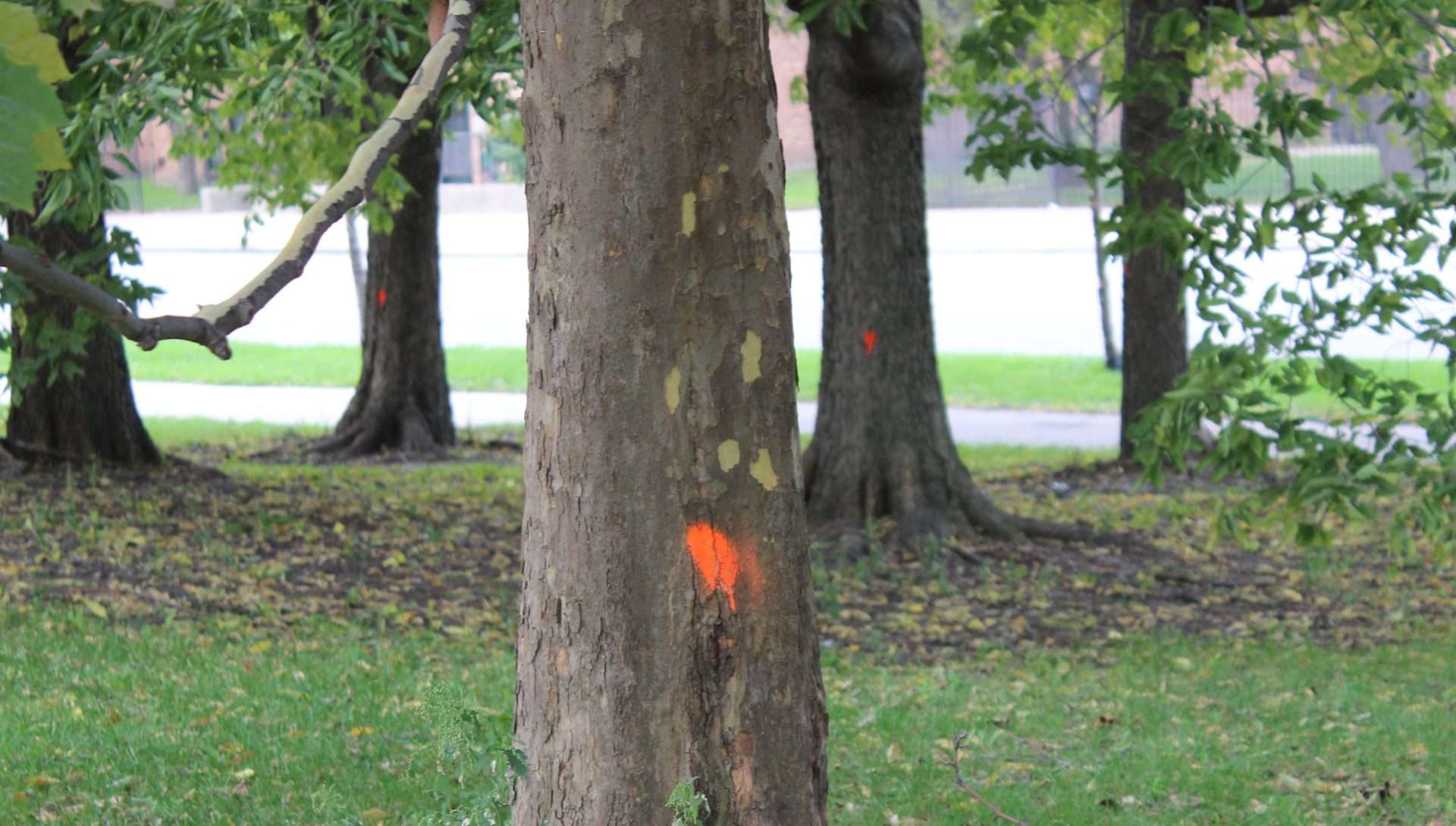By Openlands Vice President of Community Conservation, Daniella Pereira
Chicago needs its trees.
Chicago’s trees have always provided respite in its shade on a hot day, a connection to nature where we live, and health benefits by cleaning our air and reducing flooding.
But our tree canopy faces threats that make Chicago susceptible to flooding, heat islands, and environmental inequities. Pests like the emerald ash borer alone are killing 11% of the city’s trees with at least half of the 409,000 ash trees (USFS Tree Census) already removed. The current lack of environmental strategy, poor or incorrect maintenance, and misinformation among Chicago residents to the necessity and benefit of trees, will lead to unnecessary injury, mortality, and removal of otherwise flourishing trees, which affects the health of the larger urban forest and our city’s residents.
In the last few years we’ve seen the most net tree loss of trees than the last 30 years. Current City tree maintenance is on an “as-needed” basis that creates gross inequities between neighborhoods. Funds to prune trees and plant new ones have been constrained. Meanwhile, we continue to see the removal of public trees due to new development, infrastructure updates, and Aldermanic privilege – with no public policy direction to deter their removal.
This shrinking canopy affects all Chicagoans – from the value of our homes to the safety of our neighborhoods to the quality of air we all breathe. We must advance policies and actions to protect Chicago’s trees, and recognize that they are critical infrastructure to combat climate change.
An opportunity exists to rebuild a healthy and resilient urban forest, one that demonstrates Chicago’s leadership on environmental sustainability, transparency, and equity.
For the City of Chicago to sustain and grow its urban forest, City Council must pass an ordinance to create an Urban Forestry Advisory Board. The Board will be able to affect immediate changes by enacting policies and practices to improve the urban forest and centralize planning with all agencies that interact with trees. It will also identify opportunities to supplement public with private funds, and better coordinate partners’ efforts. Appointed Board members, made up of Department Commissioners, industry leaders, and community members will be expected to contribute their time to attend Board meetings and share associated administrative functions without monetary compensation.
Trees need care, and they need management just like our streets and buildings do. With the urgent challenges Chicago faces with air pollution, flooding, and excessive heat – our urban forest is one of our strongest strategies to curb the effects of climate change.
An Urban Forestry Advisory Board will put us on that path.
There are ways you can help – You can sign this petition to show your support of the Urban Forestry Advisory Board, and if you live in Chicago, you can send an email to your Alderman saying you want them to vote “yes” on the Urban Forestry Advisory Board ordinance. Please share this message to gain others’ support!
Update:
The City Council voted to advance the ordinance out of the Rules Committee and Alderman Waguespack is guiding it through the legislative process. Under his leadership, and support from its many co-sponsors and your advocacy, we are confident that this ordinance will pass City Council in the coming months.
